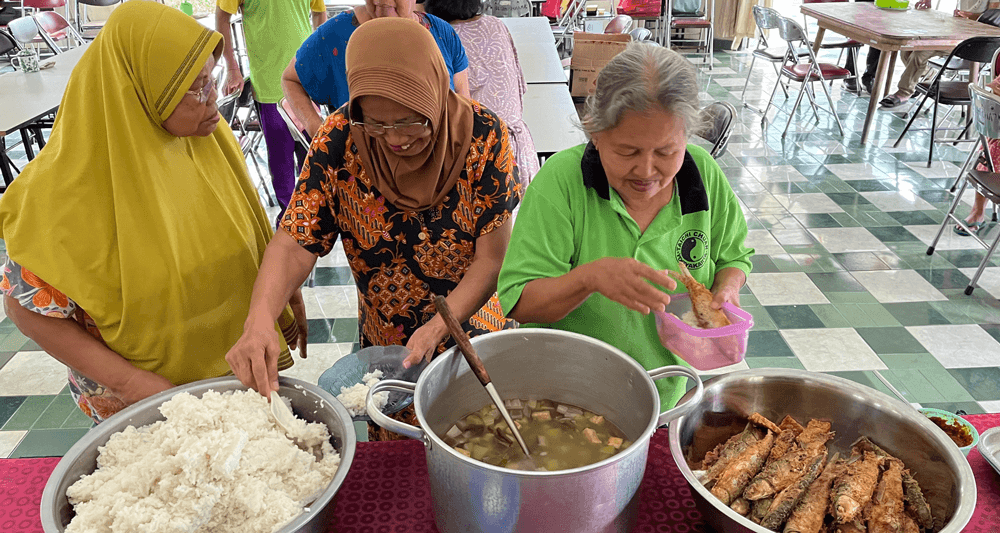In order to empowering the sustainable well-being of all human-beings, our society and our planet with "AminoScience", namely Health Provider, organizes the Elderly Meal Program in collaboration with Lecturers and Researchers from UGM. Ajinomoto Health Provider is an integrated sustainable initiative by all Ajinomoto Indonesia employees for human health and environmental sustainability.
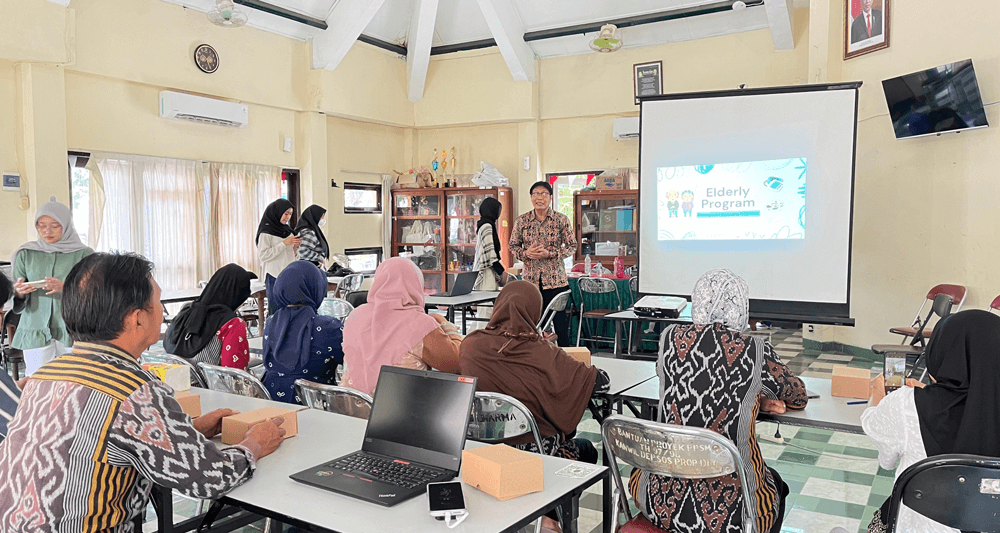
Indonesia is projected to be the country with the most elderly population in Southeast Asia by 2035. The aging process in the elderly results in various problems that cover almost every aspect of life, such as physical, biological, psychological, social, and health aspects that significantly affect their quality of life. One of the most common non-communicable diseases suffered by the elderly is hypertension, with a prevalence of 32.5%, according to Riskesdas (2018).
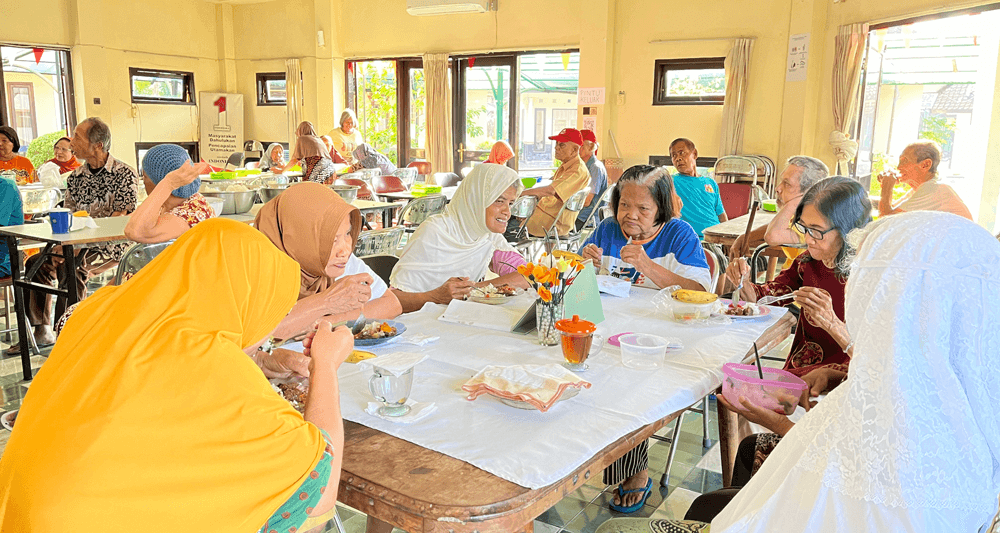
The Elderly Meal Program aims to help improve the quality of life of the elderly by providing delicious nutritious food that is high in protein but low in sodium that suits elderly needs, as well as nutritional education for nursing home administrators. In 2024, the Elderly Meal Program was held in 3 nursing homes in Yogyakarta. Nursing home administrators play an important role in providing care and support for the elderly need. One aspect that is a concern in their role is to provide the right nutritional needs to maintain the health of nursing home residents. Therefore, organizing the Elderly Meal Program in 2024 will not only target the elderly but also nursing home administrators and their cooks.
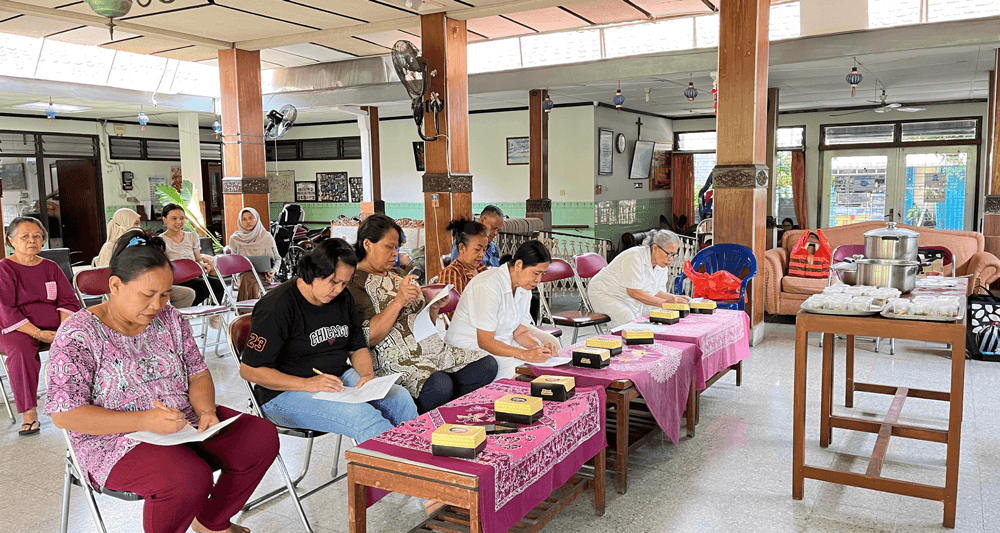
The nursing home administrators and cooks were educated on how to organize meals according to the nutritional needs of the elderly and the application of Bijak Garam with the addition of umami seasoning; education was routinely given twice a month. As a result, nursing home administrators and cooks were able to modify the elderly's food menu so that it contained good nutritional intake for the elderly, which had an impact on their quality of life.
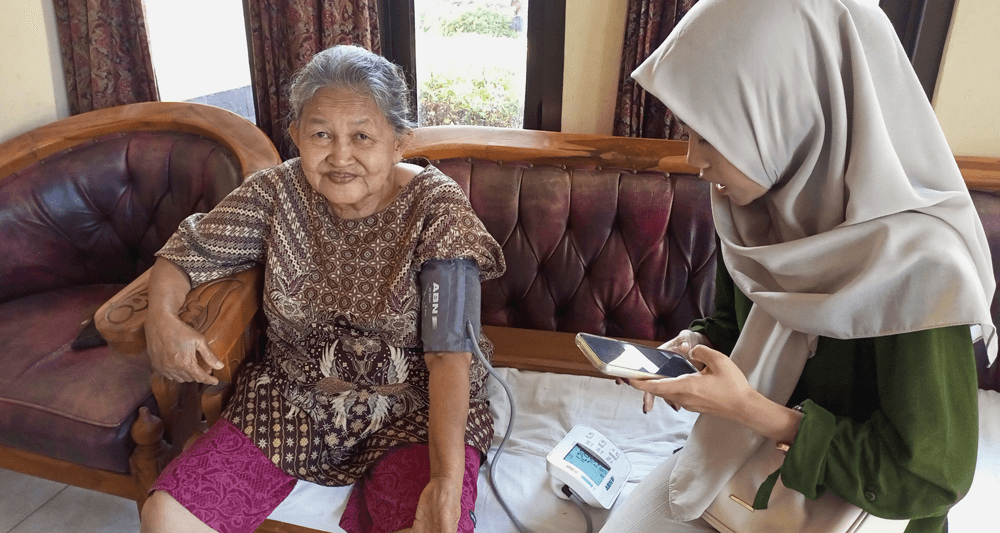
The Elderly Meal Program, held in 2021 and 2024, showed a significant decrease in the systolic and diastolic blood pressure of the participants. There was also an improvement in the physical function of the elderly, as indicated by an increase in grip values and nutritional knowledge of the nursing home administrators and cooks, which was in the good category with the routine education provided every month.
